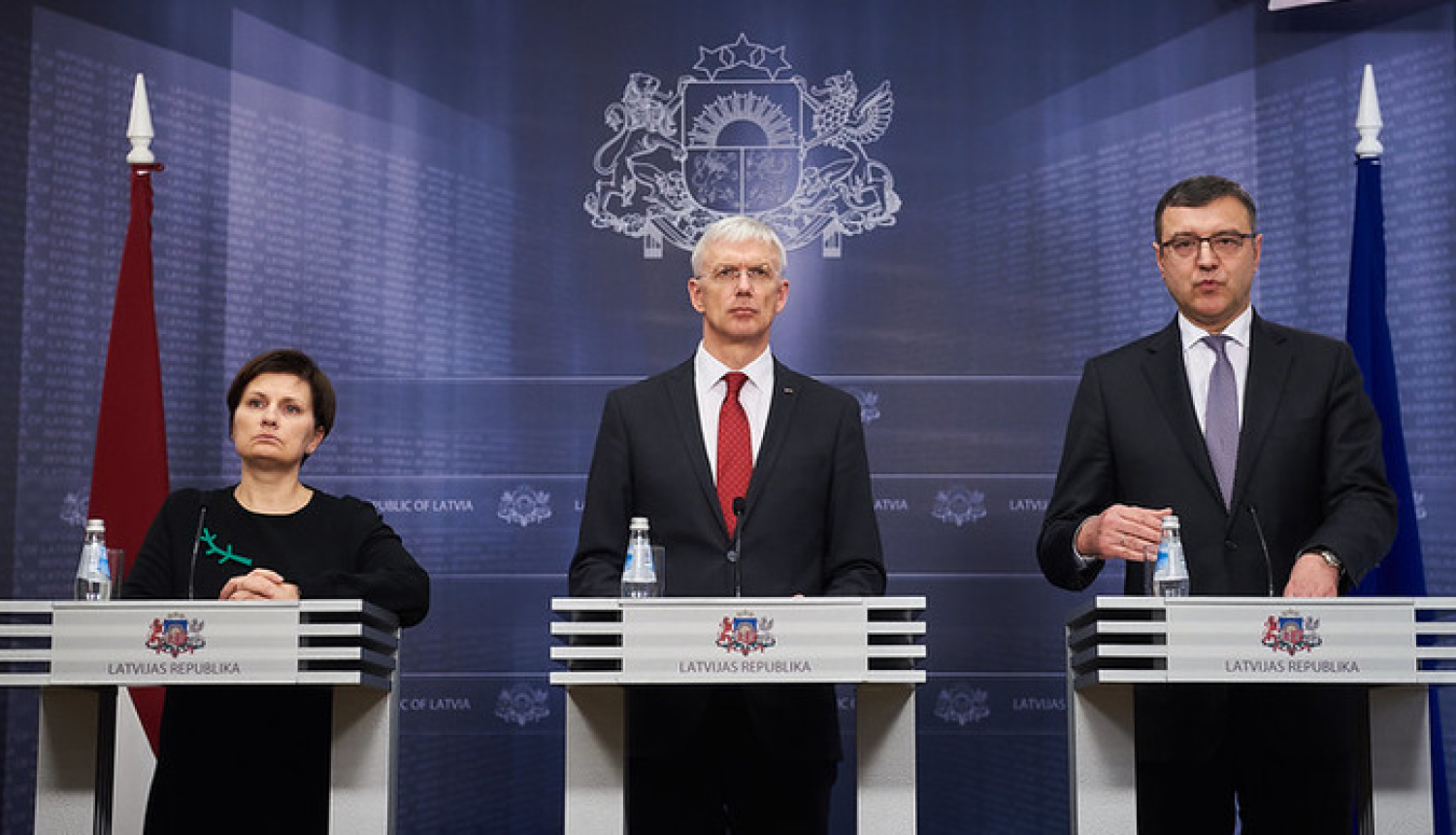In order to reduce the risk of further spread of Covid-19 among the population of Latvia, the government has expanded the range of precautionary measures. Changes pertain to incoming travellers, public gatherings, as well as the work of education institutions. Furthermore, significant support measures for several industries have been adopted.
During the state of emergency, the study process at education institutions shall be held remotely. To this end, EUR 203,160 from the emergency funds have been allocated for the purchase of smartphones and tablet computers to resolve the insufficient technical supplies of pupils. Furthermore, the Minister of Education and Science has been given a mandate to extend the school year in the event that it is not possible to provide for an adequate study process in the remote format for more than one week during the state of emergency. Likewise, the Minister may also reduce the required length of qualification practical work in post-primary education programmes.
Working hours of cultural, entertainment, sports and recreational venues may still extend no later than 23:00, and now their opening time has also been restricted to no earlier than 8:00. All tours abroad offered by tourism operators and passenger carriers have been cancelled. Likewise, employers and employees are urged to cancel all business travel abroad, if possible.
Stricter measures have also been introduced for specific groups of inhabitants. People applying for a repatriation flight, must, prior to returning to the Republic of Latvia, declare in writing that they will implement special precaution upon returning home. These precautionary measures apply to people returning from abroad, stipulating that they must spend the next 14 days at home. During this time, they are prohibited from going to work, visiting public venues or places where many people are present. Only staff and crew of passenger, cargo and technical transport returning from assignment, who do not present symptoms of acute respiratory infection and have not been identified as Covid-19 contact persons, are exempted from these requirements.
However, just as anyone else returning from abroad, these workers must also take their temperature every morning and every evening for 14 days, and in the event of developing a fever, cough or shortness of breath, they must immediately contact the emergency services by telephone 113 or 8303. Likewise, they must not host guests, go on private visits or establish any type of direct contact with others. Use of public transport should be avoided as much as possible, basic necessities and food should be purchased by home delivery or with the help of friends or family who leave the goods at the doorstep. In the absence of any other possibility, stores must be visited during hours with the least possible number of other patrons there, wearing a protective face mask and maintaining a distance of 2 meters from other store patrons.
These requirements, including self-isolation, also apply to people who have been identified as Covid-19 contact persons by the Centre for Disease Prevention and Control. These people have the right to request assistance from municipal social services, avoiding direct contact with the social worker, they must also be available for communication and cooperation with their general practitioner and other medical personnel.
Persons, who have received a laboratory confirmation of the Covid-19 diagnosis and whose health condition permits them to recover at home, must remain in strict isolation. They are prohibited from leaving their residence during this time and must be available for communication and cooperation with their general practitioner and other medical personnel, as well as follow the instructions provided thereby. Isolation may only be broken with permission from the treating physician. Until then these persons must not host guests or come into direct contact with others. Covid-19 patients must purchase basic necessities and food by home delivery or with the help of friends or family. If necessary, they may request the support of municipal social services, but must avoid direct contact with the social worker.
In order to limit the economic impact of the state of emergency, a range of support mechanisms have been established in various sectors. For example, the state will temporarily support employers in covering sick-leave payments, as well as employee salaries during idle time. Furthermore, it will be possible for businesses to defer tax payments for a period of up to three years, and the deadline for submitting annual reports has been extended to at least 31 July. The State Revenue Service will refund approved VAT payments already within 30 days of submission of VAT declarations.
ALTUM, the national development finance institution, will provide loan guarantees and loans for crisis solutions to businesses affected by the Covid-19 crisis. Interest rates on loans for tourism sector businesses will be cut by 50% for small and medium enterprises and by 15% for large enterprises in tourism and related sectors.
Relief measures in regard to personal identification documents have also been put in place for the duration of the state of emergency. Even if a personal identification document issued by the Republic of Latvia has expired, it will still be considered valid identification for the duration of the state of emergency. Foreigners whose term of legal residence in the Republic of Latvia has expired after 13 March 2020 may remain in Latvia for the duration of the state of emergency, maintaining the right to be employed if such a right was conferred in the expired residence permit.
The government also decided to allocate an additional 10 million euros to the health care system for purchasing medical protective equipment.



